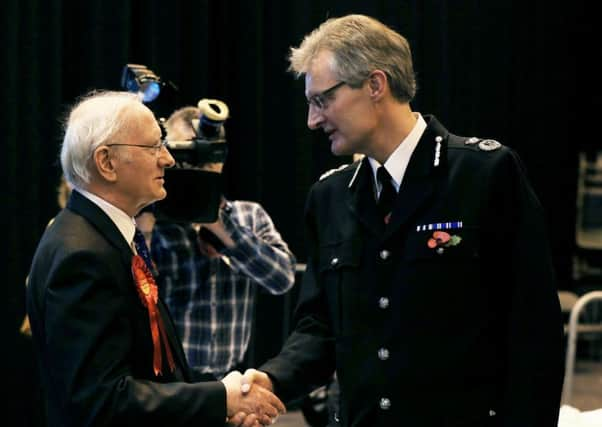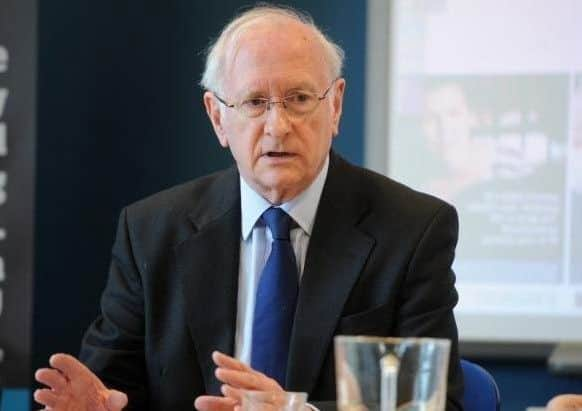It wasn't irrational for me to force out South Yorkshire Chief Constable, says crime commissioner


In papers submitted to the High Court, seen by The Yorkshire Post, Dr Alan Billings defended his decision to effectively sack David Crompton after claiming his comments in April “seriously damaged public trust and confidence” in South Yorkshire’s most senior police officer.
Mr Crompton’s statement on April 27, which said police failures at Britain’s worst sporting disaster in 1989 “had to be put into the context of other contributory factors”, seemed to go back on an earlier apology issued in 2012 by seeking to focus on the behaviour of Liverpool supporters.
Advertisement
Hide AdAdvertisement
Hide AdThe police and crime commissioner used his powers under Section 38 of the Police Reform and Social Responsibility Act 2011 the same day to suspend the £162,000-a-year chief officer and call on him to resign or retire.


After consulting Her Majesty’s Chief Inspector of Constabulary, Sir Tom Winsor, and the local police and crime panel, as he is obliged to do by law, he wrote to Mr Crompton on September 29 calling on him to resign with immediate effect.
The Chief Constable resigned that day, but in October announced that he had started legal proceedings against Dr Billings, claiming the decision to call for his resignation was “unlawful”.
His case included citing the views of Sir Tom, who called the punishment “conspicuously unfair, disproportionate and unreasonable”, and claimed the words, “other contributory factors” in the April 27 statement alluded to failures among the ambulance crew and local authority at the disaster in April 1989.
Advertisement
Hide AdAdvertisement
Hide AdIn a statement issued by his legal representatives at law firm Kingsley Napley, Mr Crompton claimed the PCC “acted unlawfully” in the four decisions he made relating to his suspension in April and the process to force the chief constable to resign.


In documents filed at the High Court, where the application for a judicial review will be heard, Jonathan Swift QC and Joanne Clement, representing Dr Billings, denied that his final decision in September was “irrational”.
They wrote: “Section 38(3) of the 2011 Act identifies the democratically elected commissioner as primary decision-maker.
“It was for the commissioner to assess whether trust and confidence in the claimant as Chief Constable had been damaged, taking into account his knowledge of the local context. In forming that judgement, the commissioner is entitled to a wide margin of discretion.
Advertisement
Hide AdAdvertisement
Hide Ad“It is not for the court to interfere simply because it would have made a different decision had it been the primary decision maker. Rationality imposes a high threshold: there may well be more than one rational response to a particular set of circumstances.


“If the commissioner’s response falls within the range of possible rational responses, the claim must fail.”
The documents alleged that the the challenge to the first decision to call on Mr Crompton to resign in April “has been brought out of time”, as it was not made until October 4.
And it added: “The final decision was plainly a decision that was lawfully open to the commissioner.
Advertisement
Hide AdAdvertisement
Hide Ad“The commissioner was entitled to consider that the second statement had seriously damaged public trust and confidence in the claimant as Chief Constable.


“There was an inevitable risk that the statement would be seen as qualifying the previous apologies and that the claimant, and hence South Yorkshire Police, had not fully accepted the inquest verdicts and had to go on trying to justify itself.”
The jury at the Hillsborough inquests found 96 football fans were unlawfully killed, after hearing two years of evidence.
Jurors found the then match commander, Chief Supt David Duckenfield, was “responsible for manslaughter by gross negligence” due to a breach of his duty of care.